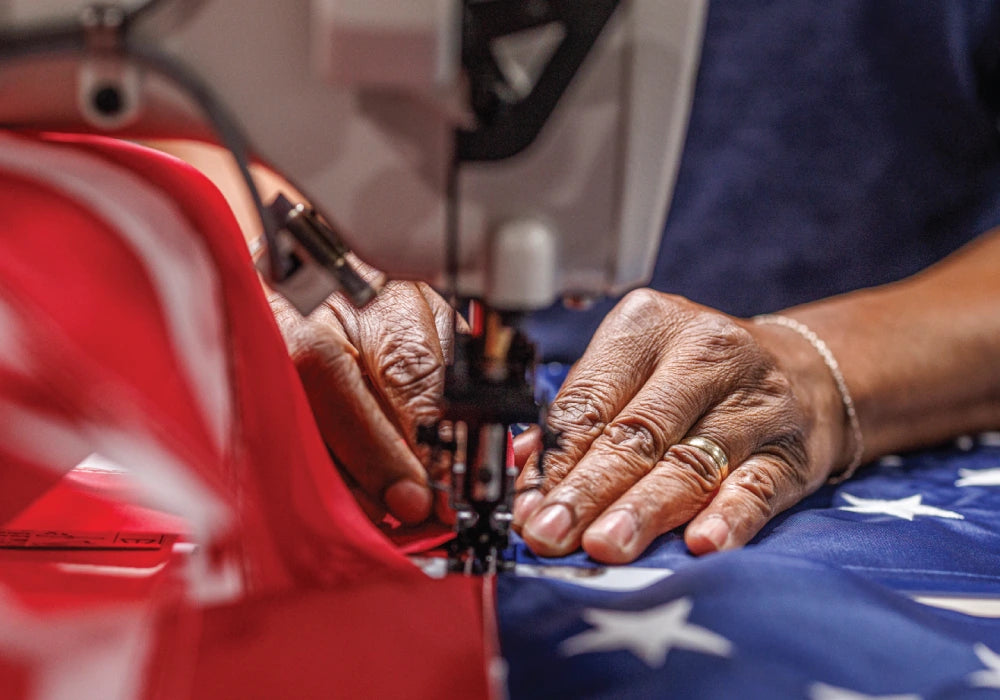April 7

1954
President Dwight D. Eisenhower coined one of the most famous Cold War phrases when he suggested the fall of French Indochina to the communists could create a “domino” effect in Southeast Asia. The so-called “domino theory” dominated U.S. thinking about Vietnam for the next decade. The U.S. government used the now-discredited theory to justify its involvement in the Vietnam War and its support for a non-communist dictator in South Vietnam. In fact, the American failure to prevent a communist victory in Vietnam had much less of an impact than had been assumed by proponents of the domino theory. With the exception of Laos and Cambodia, communism failed to spread throughout Southeast Asia.

1970
The legendary actor John Wayne won his first—and only—acting Academy Award, for his star turn in the director Henry Hathaway’s Western True Grit. Wayne’s Oscar for True Grit at the 42nd annual Academy Awards was generally considered to be a largely sentimental win, and a long-overdue reward for one of Hollywood’s most enduring performers. The Academy had failed to even nominate Wayne for any of his most celebrated performances, including The Searchers (1956), considered by many to be the greatest Western ever made.

1979
Nearly a year after his brother Bob pitched a no-hitter, Houston Astros pitcher Ken Forsch tossed his first career no-hitter. Ken and Bob became the first—and only—brothers to pitch official no-hitters in Major League Baseball history. On April 16, 1978, Bob Forsch pitched a no-hitter for the St. Louis Cardinals against the Philadelphia Phillies. Brothers Pascual and Melido Pérez pitched rain-shortened, unofficial no-hitters—Pascual in five innings for the 1988 Montreal Expos and Melido in six innings for the 1990 Chicago White Sox.
April 8
 .
. 
1974
Hank Aaron of the Atlanta Braves hits his 715th career home run, breaking Babe Ruth’s legendary record of 714 homers. A crowd of 53,775 people, the largest in the history of Atlanta-Fulton County Stadium, was with Aaron that night to cheer when he hit a 4th inning pitch off the Los Angeles Dodgers’ Al Downing. Aaron hung up his cleats in 1976 with 755 career home runs—a record that stood until 2007. He went on to become one of baseball’s first African American executives, with the Atlanta Braves, and a leading spokesperson for minority hiring. Hank Aaron was inducted into the Baseball Hall of Fame in 1982. He died on January 22, 2021, at age 86.

1993
The space shuttle Discovery lifted off from the Kennedy Space Center with astronaut Ellen Ochoa on board, the first Hispanic woman in space. Ochoa started at NASA in 1988 after receiving a doctorate in electrical engineering from Stanford University. Two years later, she was selected as an astronaut. On her first mission, Ochoa served as a Mission Specialist on a 9-day space flight, the primary mission of which was to study Earth's ozone layer. She went on to fly three more space shuttle missions. She holds several patents for technologies related to automated space exploration and served as Director of the Johnson Space Center. Among numerous other awards, she has received NASA's highest honor, the Distinguished Service Medal.

2009
The MV Maersk Alabama was hijacked off the coast of Somalia, the first ship sailing under the American flag since the 1820s to be hijacked by pirates. Just a day before the attack, the Maersk Alabama received warning from the US government to stay at least 600 miles off the coast of Somalia, but Captain Richard Phillips kept the ship about 240 miles from the coast. Four pirates were able to board and took Phillips as hostage in a lifeboat. After a three day standoff, President Obama authorized Navy SEAL snipers to open fire. With stunning accuracy, three pirates were killed while Phillips was rescued unharmed. The incident received international attention, bringing the problem of modern-day piracy to many people’s attention for the first time.
April 9

1865
In Appomattox Court House, Virginia, Robert E. Lee surrendered his 28,000 Confederate troops to Union General Ulysses S. Grant. Forced to abandon the Confederate capital of Richmond, blocked from joining the surviving Confederate force in North Carolina, and harassed constantly by Union cavalry, Lee had no other option. Grant accepted Lee's terms which included all officers and men to be pardoned. Shushing a band that had begun to play in celebration, General Grant told his officers, “The war is over. The Rebels are our countrymen again.” Although scattered resistance continued for several weeks, for all practical purposes the Civil War had come to an end.

1962
Puerto Rican actress Rita Moreno won a Best Supporting Actress Oscar for her role of Anita in West Side Story (1961), becoming the first Hispanic woman to win an Oscar. While many of the actors, including leads Natalie Wood and Richard Beymer, did not perform their own singing parts, Moreno recorded most of Anita's songs herself. One such song was "America," a piece with heavy Latin influences in which characters both celebrate the experience of Puerto Rican immigrants and decry their adopted country's racism. West Side Story was an enormous success, winning ten Oscars including Best Picture. As she accepted her award, a bewildered Moreno kept her acceptance speech concise: "I can't believe it. Good Lord! I leave you with that."

2003
Just three weeks into the invasion of Iraq, U.S. forces pulled down a bronze statue of Saddam Hussein in Baghdad’s Firdos Square, symbolizing the end of the Iraqi president’s long, often brutal reign, and a major early victory for the United States. Dramatic images of the toppled statue and celebrating citizens were instantly beamed around the world. With Hussein in hiding and much of the city now under U.S. control, the day’s events later became known as the Fall of Baghdad. The Iraq War was far from over, however. Hussein was captured by U.S. forces in December 2003 and executed in December 2006, but the US would not formally withdraw from Iraq until December 2011.
April 10


1866
The American Society for the Prevention of Cruelty to Animals (ASPCA) is founded in New York City by philanthropist and diplomat Henry Bergh, 54. Bergh had been appointed by President Abraham Lincoln to a diplomatic post at the Russian court of Czar Alexander II. It was there that he was horrified to witness work horses beaten by their peasant drivers. En route back to America, a June 1865 visit to the Royal Society for the Prevention of Cruelty to Animals in London awakened his determination to secure a charter not only to incorporate the ASPCA but to exercise the power to arrest and prosecute violators of the law.

1963
The USS Thresher, an atomic submarine, sank in the Atlantic Ocean. Built with new technology, it was the first submarine assembled as part of a new class that could run more quietly and dive deeper than any that had come before. Not long after 9am, sonar images showed the Thresher breaking apart as it fell to the bottom of the sea. Sixteen officers, 96 sailors and 17 civilians were on board. All were killed. A subsequent investigation revealed that a leak in a silver-brazed joint in the engine room had caused a short circuit in critical electrical systems. The disaster forced improvements in the design and quality control of submarines.

1971
The U.S. table tennis team began a weeklong visit to the People’s Republic of China (PRC) at the invitation of China’s communist government. The well-publicized trip was part of the PRC’s attempt to build closer diplomatic relations with the United States, and was the beginning of what some pundits in the United States referred to as “ping-pong diplomacy.” The “ping-pong diplomacy” worked. In June 1972, President Richard Nixon made a historic visit to China to begin talks about re-establishing diplomatic relations. The Chinese table tennis team also toured America, causing a short-lived craze for table tennis.
April 11

1951
In perhaps the most famous civilian-military confrontation in the history of the United States, President Harry S. Truman relieved General Douglas MacArthur of command of the U.S. forces in Korea. Problems with the flamboyant and egotistical General MacArthur had been brewing for months with Truman and MacArthur clashing on how to continue the war. The firing of MacArthur set off a brief uproar among the American public, but Truman remained committed to keeping the conflict in Korea a “limited war.” MacArthur returned to the United States to a hero’s welcome. Parades were held in his honor, and he was asked to speak before Congress (where he gave his famous “Old soldiers never die, they just fade away” speech).

1970
Apollo 13, the 3rd lunar landing mission, was successfully launched from Cape Canaveral, carrying astronauts James A. Lovell, John L. Swigert and Fred W. Haise. On April 13th, an oxygen tank exploded, disabling the normal supply of oxygen, electricity, light, and water. Lovell reported to mission control: “Houston, we’ve had a problem here." All plans for a lunar landing were cancelled and the new objective was to get the crew home alive. For the next three days, Lovell, Haise and Swigert huddled in the freezing lunar module. On April 17th, the spacecraft reentered Earth’s atmosphere. Mission control feared that the CM’s heat shields were damaged in the accident, but after four minutes of radio silence Apollo 13‘s parachutes were spotted, and the astronauts splashed down safely into the Pacific Ocean.

2015
President Barack Obama and Raúl Castro, President of Cuba and brother of Fidel Castro, with whom the United States broke off diplomatic contact in 1961, shook hands and expressed a willingness to put one of the world’s highest-profile diplomatic feuds in the past. It was the first time in over 50 years the presidents of the two countries had met. Both leaders stressed their desire to work together, but warned that their meeting was only the beginning of what would have to be a long dialogue. A short time later, the Obama administration removed Cuba from its list of state sponsors of terror, and the diplomatic relationship was officially re-established in July.
April 12

1861
The bloodiest four years in American history began when Confederate shore batteries under General P.G.T. Beauregard open fire on Union-held Fort Sumter in South Carolina’s Charleston Harbor. During the next 34 hours, 50 Confederate guns and mortars launched more than 4,000 rounds at the poorly supplied fort. On April 13, U.S. Major Robert Anderson surrendered the fort. Two days later, U.S. President Abraham Lincoln issued a proclamation calling for 75,000 volunteer soldiers to quell the Southern “insurrection.” Four years after the Confederate attack on Fort Sumter, the Confederacy was defeated at the total cost of 620,000 Union and Confederate soldiers dead.

1945
President Franklin Delano Roosevelt passed away of a massive cerebral hemorrhage after four momentous terms in office, leaving Vice President Harry S. Truman in charge. Truman had rather large shoes to fill. FDR had presided over the Great Depression and most of World War II, leaving an indelible stamp on American politics for several decades. He also left Truman with the difficult decision of whether or not to continue to develop and, ultimately, use the atomic bomb. Shockingly, FDR had kept his vice president in the dark about the bomb’s development and it was not until Roosevelt died that Truman learned of the Manhattan Project. After a solemn state funeral, he was buried at his family’s home in Hyde Park, New York.

1975
The U.S. Navy evacuated Americans from the U.S. Embassy in Phnom Penh, Cambodia, as part of Operation Eagle Pull. The evacuation came as the communist Khmer Rouge seized the capital city to end a five-year war. Marine and Air Force helicopters carried 276 evacuees—including 82 Americans, 159 Cambodians, and 35 foreign nationals—to the safety of U.S. Navy assault carriers in the Gulf of Thailand without any casualties. The victorious Khmer Rouge evacuated Phnom Penh and set about to reorder Cambodian society, which resulted in a killing spree and the notorious “killing fields.” Eventually, hundreds of thousands of Cambodians were murdered or died from exhaustion, hunger, and disease.
April 13

1870
The Metropolitan Museum of Art was officially incorporated in New York City. The brainchild of American expatriates in Paris and a number of wealthy New Yorkers, the Met would not put on an exhibition until 1872, but it quickly blossomed into one of the world’s premier repositories of fine art. The Met continues to display some of the world’s largest collections of European and Antique art, and has expanded to include works from every continent and nearly every medium. Today, the Met is not only one of the leading artistic and social institutions in New York but one of the best-known and most-visited museums in the world, hosting around 7 million visitors a year.

1964
Sidney Poitier became the first African American to win the Academy Award for Best Actor, for his role as a construction worker who helps build a chapel in Lilies of the Field (1963). By consistently refusing to play the stereotypical roles that were offered to him as a Black actor, Poitier blazed a trail for himself and the performers who followed him. By the time he earned a Best Actor Oscar nomination for The Defiant Ones (1958), his work in such films as The Blackboard Jungle (1955) had made him America’s first prominent Black film star.

1997
21-year-old Tiger Woods won the prestigious Masters Tournament by a record 12 strokes in Augusta, Georgia. It was Woods’ first victory in one of golf’s four major championships and the greatest performance by a professional golfer in more than a century. It also made him the youngest golfer by two years to win the Masters and the first person of Asian or African heritage to win a major. His margin of victory–12 strokes–was the largest in the 20th century, and second only to Old Tom Morris’ 13-shot margin at the 1862 British Open. His score of 18-under-par 270 broke Jack Nicklaus’ 32-year-old Masters record of 17-under-par 271.






